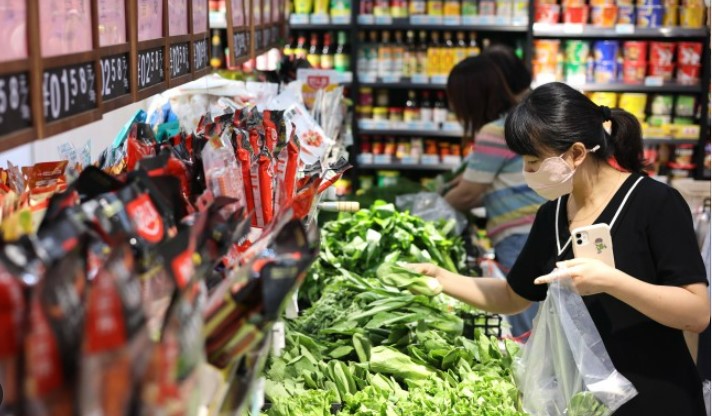Virendra Pandit
New Delhi: The world’s second-largest economy, the People’s Republic of China (PRC), slipped into deflation in July for the first time in over two years as slowing domestic spending, and waning exports and imports, weigh heavily on the post-Covid economic recovery.
The shock came a day after reports, quoting official data, emerged that the Asian country suffered its biggest fall in exports since the early days of the pandemic in 2019, while imports tanked again as domestic and global demand plummeted, the media reported on Wednesday.
The Consumer Price Index (CPI), the main gauge of inflation, which flatlined in June, fell 0.3 percent in July, the National Bureau of Statistics said.
While it was marginally better than the 0.4 percent decline forecast earlier, it marked the first drop since early 2021 and will add to pressure on authorities to support the economy, the reports said.
Before this one, the last deflationary period was in 2009.
Deflation is the reverse of inflation. It refers to falling prices of goods and services and is triggered by a number of factors, including waning consumption.
While cheaper goods appear attractive to consumers, falling prices actually threaten the broader economy as they often postpone purchases hoping for even lower prices ahead.
Shrinking demand then forces manufacturers to curtail production, freeze hiring or lay off workers, and offer new discounts to dispose of their stocks. This dampens profitability even as costs remain the same.
China experienced a short period of deflation at the end of 2020 and early 2021, due largely to a collapse in the price of pork, the most widely consumed meat in the country, the media reported.
With youth unemployment at a record high of over 20 percent and its main growth engines coming to a halt, a longer stretch of deflation in China is feared this time around.
According to the media reports, quoting economist Andrew Batson of Gavekal Dragonomics, the ongoing turmoil in real estate, a sector that has long accounted for a quarter of China’s economy, is the “main source for this deflationary shock.
The fresh drop in exports directly impacted tens of thousands of export-oriented companies in China, which are now operating at a much slower pace than their installed capacities.
Also, the producer price index fell 4.4 percent in July, slightly better than June’s 5.4 percent fall, but marking the 10th consecutive month of contraction. Declining producer prices mean reduced margins for companies.
The official data suggests that China may struggle to achieve even a five percent growth target set for the year. It only grew 0.8 percent between the first and second quarters of 2023.

